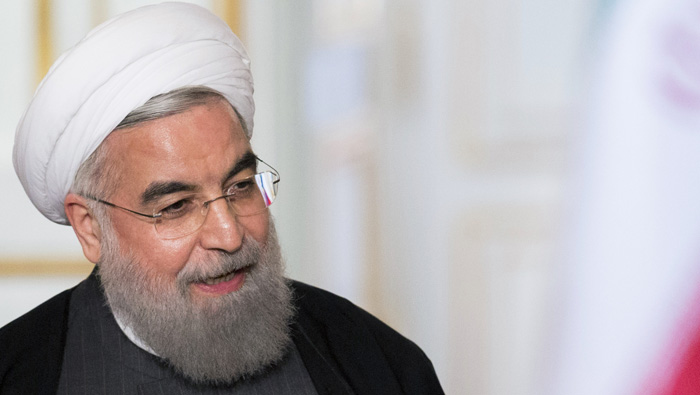
Islamabad: Iranian President Hassan Rouhani was scheduled to arrive in Pakistan on Friday as the neighbours seek to revive trade ties held back for years by international sanctions.
The two-day trip, the first by an Iranian head of state in 14 years, will feature talks on a long-delayed gas pipeline, a plan to increase trade between ports on the Arabian Sea and a goal to boost electricity sales. Pakistan desperately needs energy, and Iran is looking for buyers.
“A new chapter of relations between Iran and other countries — especially neighbours and especially Pakistan — is going to be started,” Seyed Abbas Badrifar, a spokesman for Iran’s embassy in Islamabad, said in telephone interview on Tuesday. He said the pipeline "is very much on, and it’s up to Pakistan when it builds.”
Pakistan, which has traditionally had close relations with the United States and Saudi Arabia, enforced United Nations-backed economic sanctions designed to deter the nuclear programme. Those restrictions made it difficult to find financial backing for the 800km (500 miles) of pipeline needed on the Pakistani side.
Economic diplomacy
With most sanctions now lifted, both countries are seeking to bolster economic links. Pakistan currently trades more with rival India than it does with Iran. The two nations last year agreed to boost their bilateral trade to $5 billion from $1 billion over five years.
"Iranians are on a course of active economic diplomacy,” said Hasan-Askari Rizvi, a Lahore-based defence analyst. "Also Pakistan provides them an opening to China.”
Pakistan Prime Minister Nawaz Sharif has revived investor interest in Pakistan with moves to clamp down on extremism and ease electricity shortages. China is helping to build up Pakistan’s infrastructure with a $46 billion investment corridor that will give it a link to the Arabian Sea.
Rouhani will travel with eight cabinet ministers including those responsible for oil, electricity and industries. Pakistan and Iran plan to sign a five-year strategic commercial plan, as well as easing the trade of meat and animals between Karachi and Chabahar port in Iran, according to Badrifar from the embassy. Pakistan is also looking to import as much as 3,000 megawatts of electricity from Iran, up from about 75 megawatts now.